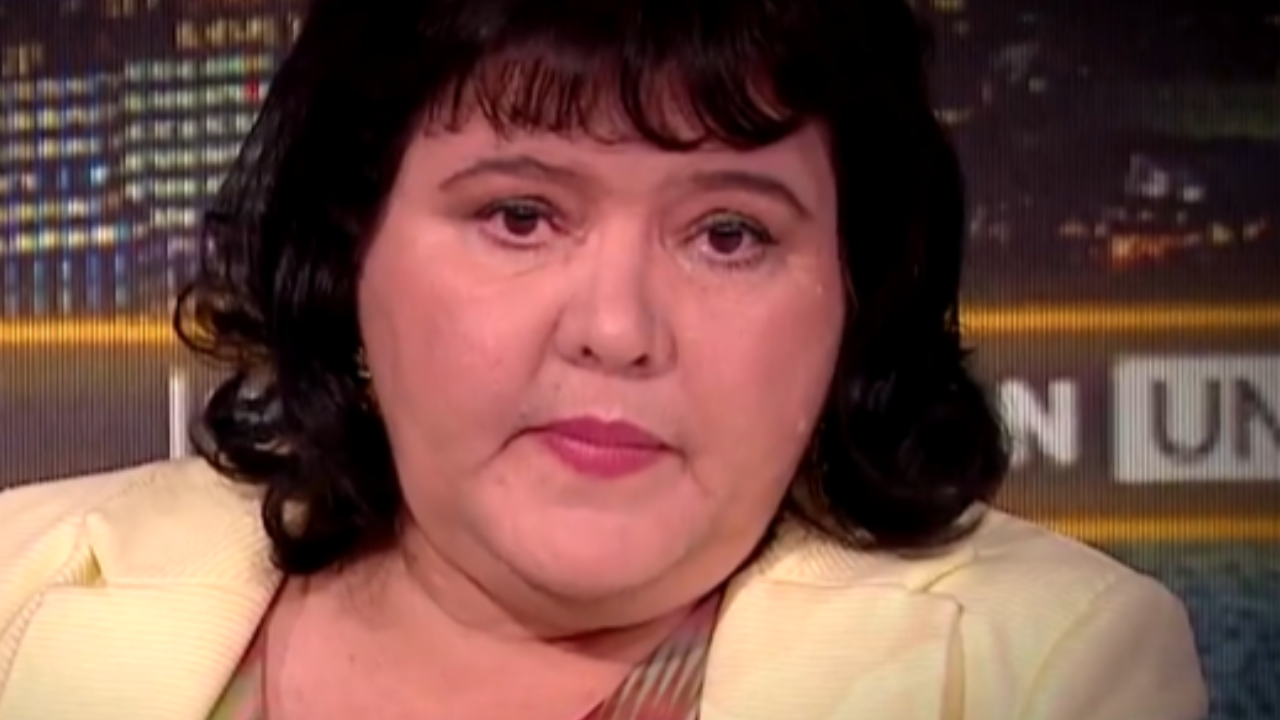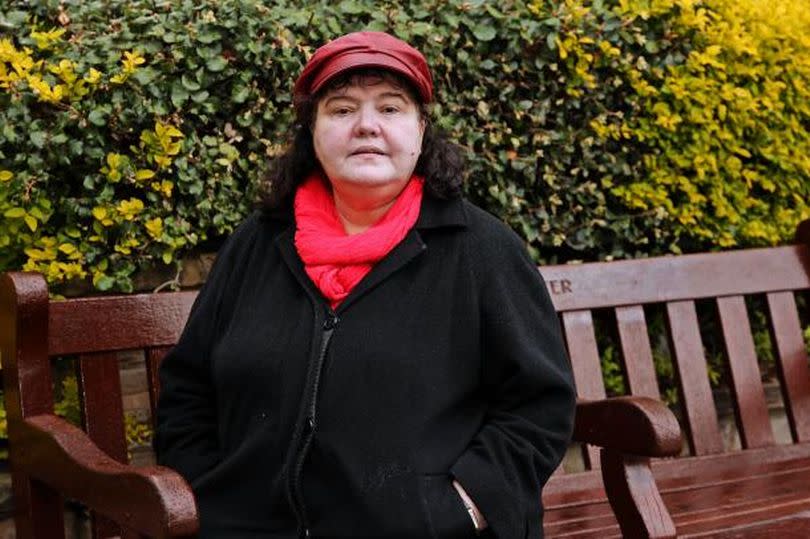Could the portrayal of a real person in a global hit television series irrevocably damage their life? Fiona Harvey, the woman claiming to be the inspiration behind the character "Martha" in Netflix's "Baby Reindeer," is betting a $170 million lawsuit that it can.
The miniseries "Baby Reindeer," a darkly comedic and deeply unsettling exploration of stalking, trauma, and the complexities of human relationships, has captivated audiences worldwide. Based on the autobiographical experiences of its creator, Richard Gadd, the show portrays Gadd's character, "Donny," being relentlessly stalked by "Martha," a woman he meets at a pub where he works. The series details the emotional and psychological toll of the stalking, including the barrage of emails, messages, and unwanted physical contact. Fiona Harvey, who has publicly acknowledged she is the real-life inspiration for "Martha," vehemently disputes the show's depiction of her, claiming it is a gross misrepresentation.
The crux of Harvey's legal argument lies in the assertion that she was falsely portrayed as a stalker and a criminal, and that the show has defamed her. She has stated she denies having a criminal record, directly contradicting the show's implication. While the series is based on Gadd's personal experiences, Harvey alleges the adaptation veers into the realm of fiction, damaging her reputation and causing her significant emotional distress. This defamation claim is the core of her $170 million lawsuit against Netflix, a figure that underscores the perceived severity of the damage.
| Category | Details |
|---|---|
| Full Name | Fiona Harvey |
| Age | 58 (as of 2024) |
| Known For | Being the alleged real-life inspiration for the character "Martha" in the Netflix series "Baby Reindeer," based on the experiences of Richard Gadd. |
| Claimed Profession | Law (details are disputed, see below) |
| Education | Reportedly studied law, but specifics of degree and grades are in dispute. |
| Lawsuit Against Netflix | $170 million defamation suit filed on June 6, alleging misrepresentation and damage to reputation. |
| Public Statements | Denied stalking Gadd; claimed the show's depiction is inaccurate and defamatory. |
| Personal Details | Little public information available; remains private, aside from interviews and legal filings. |
| Social Media | Present on Facebook and Twitter; however, details related to the matter are disputed. |
| Key Issues | Defamation, portrayal of stalking behavior, impact on reputation, and emotional distress. |
| Reference | Netflix Official Website |
The controversy surrounding "Baby Reindeer" and Fiona Harvey highlights the ethical complexities of adapting real-life events for entertainment. While creators often draw inspiration from their personal experiences, the line between artistic license and factual representation can become blurred. The show's success and the public's fascination with the story have led to intense scrutiny of Harvey, with online sleuths attempting to uncover details of her past and connect her to the events depicted in the series. This phenomenon underscores the potential for such portrayals to have a significant and potentially damaging impact on the lives of those involved.
The legal battle is not just about financial compensation; it's a fight for Harvey's reputation. She claims she has been easily identified as the stalker in the show. The lawsuit alleges the show contains false and defamatory statements that have caused her significant harm. She argues that the depiction of her character, Martha, has led to public harassment and a loss of privacy. This, she believes, has resulted in significant emotional distress and damage to her personal and professional life.
Netflix, on the other hand, will likely defend its portrayal by arguing that the series is a work of fiction inspired by real events and that the character of Martha is a composite representation. They will probably emphasize the creative freedom enjoyed by filmmakers. The streaming giant may point out that while the show is based on Gadd's experiences, the events, and the characters have been altered for dramatic effect. Furthermore, they could argue that the show does not explicitly name or identify Harvey as the real-life Martha, relying on the audience's interpretation.
- Unveiling The Talent Of Merrin Dungey A Journey Through Film And Television
- Did Ree Drummond Pass Away In 2024 A Comprehensive Look
In a letter to the U.K.'s culture, media, and sport select committee in May, Netflix executive Benjamin King stated that Harvey was subject to a court order rather than a conviction, subtly acknowledging the existence of some legal proceedings involving her. This statement suggests that Netflix is aware of the factual basis for some elements of the story. It will be a critical part of the defense strategy.
Harvey's lawyer, Richard Roth, has given interviews, explaining the case they are building. The legal team's strategy is focused on demonstrating that the show's creators were negligent in their portrayal of Harvey, and that the character of Martha is sufficiently similar to Harvey that the audience would reasonably conclude that she is the inspiration. Furthermore, they will argue that the statements made in the show about Martha are false and defamatory and that these statements have caused Harvey significant harm.
The legal process will involve investigating the extent of the liberties taken by the show's creators, as well as assessing the damage done to Harvey's reputation. The discovery phase of the lawsuit will likely involve gathering evidence such as emails, messages, and social media interactions between Gadd and Harvey. The goal will be to establish the truth regarding the factual events that inspired the show and the extent of the harm caused by the show's depiction. It will also consider the context in which these events occurred.
The case also brings up the issue of creative license and the responsibilities of content creators when adapting real-life events. While writers and filmmakers are afforded creative freedom, the question remains: Where does artistic license end, and defamation begin? Does the right to tell a compelling story outweigh the potential harm to the individuals involved? These are vital points for all involved. The outcome of this lawsuit could set a precedent for future cases involving biographical dramas and shows based on real-life events, influencing how such stories are told.
The case has sparked significant debate, with some arguing that "Baby Reindeer" is a powerful piece of storytelling and that it is crucial to raise awareness about stalking and its impact. Others are more sympathetic to Harvey, seeing her as a victim of a sensationalized account. The series is a complex exploration of trauma, and the legal battle ensures that these themes continue to resonate.
The lawsuit highlights the potential impact of online investigations by the audience. The ease with which viewers can identify and target individuals based on a television show's portrayal can be alarming. This case also touches on the power of streaming platforms, which can reach massive audiences and amplify the impact of narratives, whether fictional or based on truth. It serves as a reminder of the human cost of entertainment and the potential for art to have real-world repercussions. The case will likely continue, with the legal team preparing for lengthy court battles. The eventual outcome will likely shape the landscape of how real-life stories are portrayed and how individuals are protected when their lives become the subject of entertainment.
The court will have to decide, in light of her legal claims. The evidence, including all the tweets sent from Fiona Harvey's Twitter account to Richard Gadd, and the information collected, will be examined.
- Did Ree Drummond Pass Away In 2024 A Comprehensive Look
- Unveiling The Life And Legacy Of Jason Emanuel Gould


